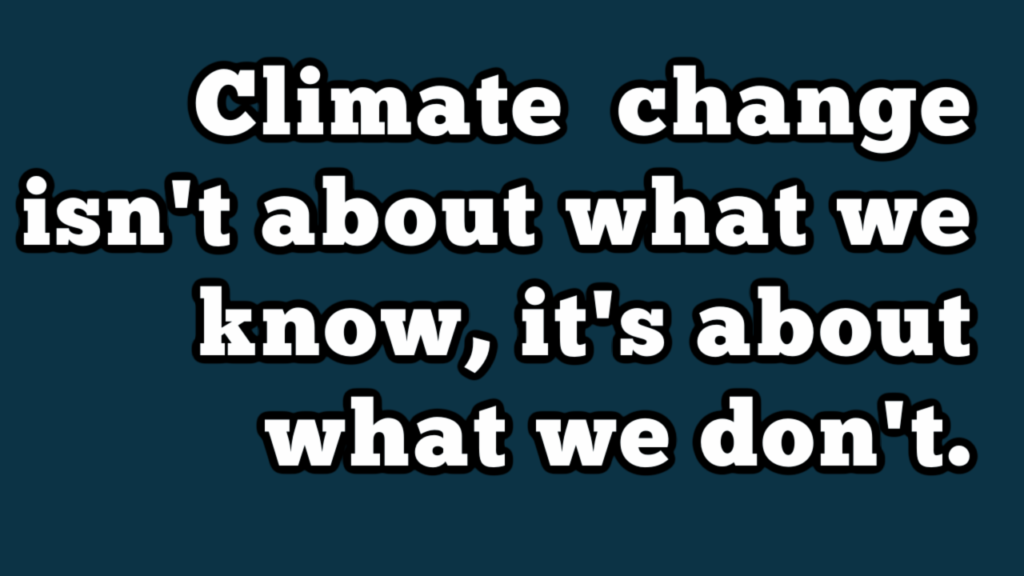Climate change isn’t about what we know, it’s about what we don’t.

The title for this piece is drawn from this depressing Bloomberg Green piece about what we know is bad enough, what we don’t is potentially much worse. The article talks about large-scale events that might be tipping points. Here’s an excerpt:
It’s precisely these costs of major planetary tipping points that I set out to calculate with three stellar colleagues in a paper published this week in the Proceedings of the National Academy. The main finding, heavily caveated as is the wont of any such research: A conservative estimate raises the urgency of action today by around 25%. The metric to capture this urgency is the social cost of carbon, what each ton of CO₂ emitted today costs society — and, thus, should cost those doing the polluting.
That 25% alone represents a significant impact, but we cannot leave things there. For one, it represents what we call a “probable underestimate,” for all sorts of important reasons, not least the fact that both the science and perhaps especially the economics are indeed inherently conservative.
Second, focusing on that 25% figure would miss perhaps the most important point of the exercise: We find that the impact of these tipping points is itself highly uncertain, with a very real possibility of much larger impacts. For example, we estimate a 10% chance that tipping points more than double the social cost of carbon.
